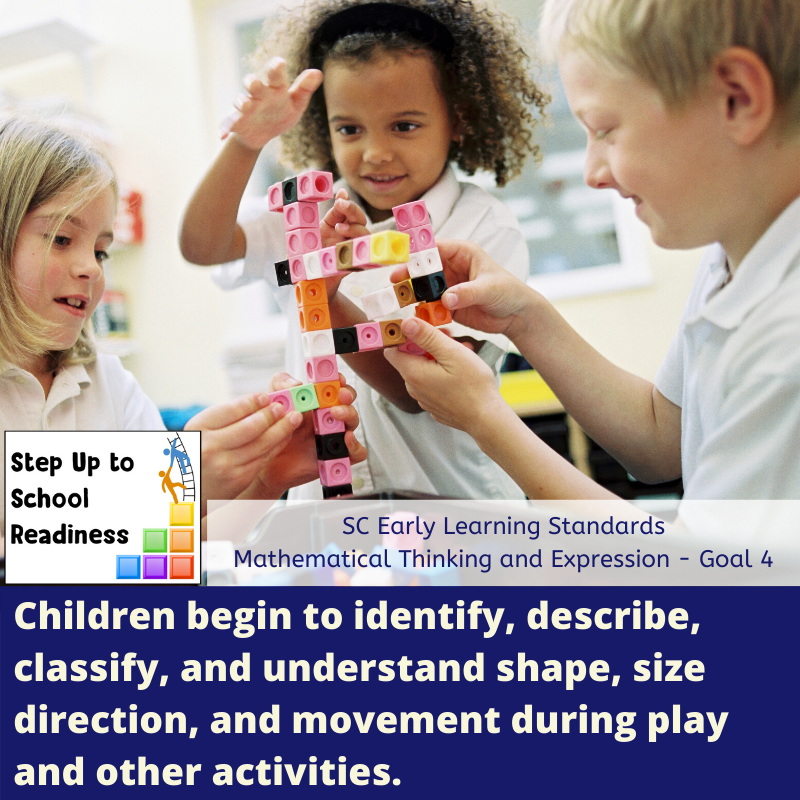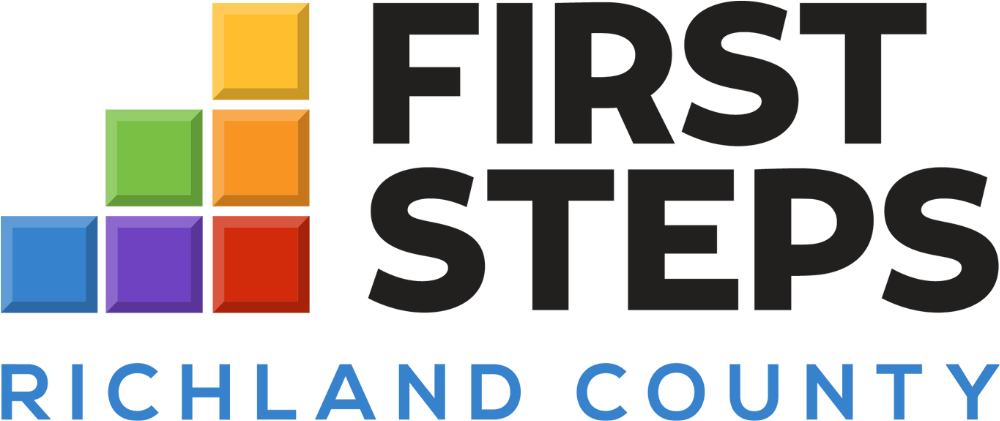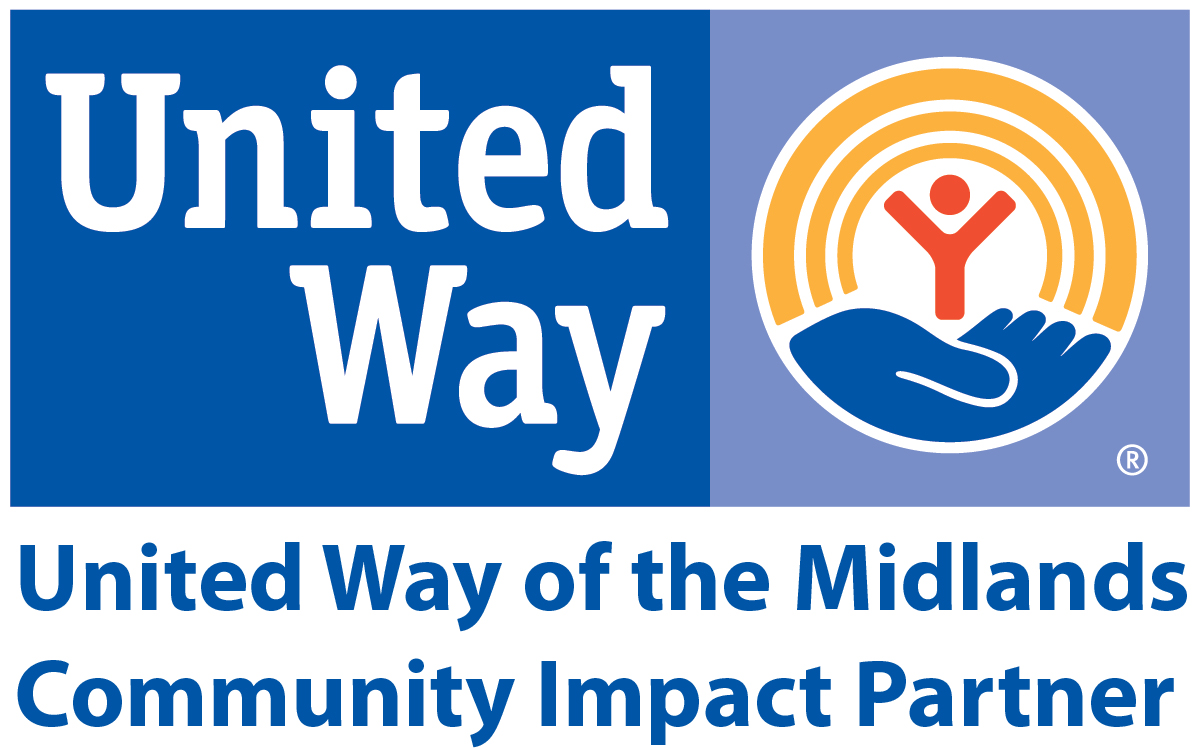
DOMAIN: Mathematical Thinking and Expression
SUBDOMAIN: Foundations for Geometry and Spatial Understanding
DEVELOPMENTAL INDICATORS
Infants (Birth to 12 months):
- Examine different shapes by exploring (banging blocks on the floor, rolling balls).
- Attempt to put objects into other objects (such as putting pieces into holes or other spaces).
Younger Toddlers (8 to 21 months):
- Explore space with their bodies (fit self into box, crawl under table, climb over low walls).
- Put basic shapes into a shape sorter using trial and error.
Older Toddlers (18 to 36 months)
- Respond to an begin to use words describing positions (in, on, over, under, etc.)
- Name or match a few 2- and 3-dimensional shapes (circle, square, cylinder).
- Stack or line up blocks that are the same shape.
- Complete shape sorter with intention.
Younger Preschoolers (36 to 48 months)
- Respond to and begin to use words describing positions (in, on, over, under, etc.).
- Name or match a few 2- and 3-dimensional shapes (circle, sphere, square, triangle, cone) and describe their differences.
- Stack or line up blocks that are the same shape.
Older Preschoolers (48 to 60+ months)
- Consistently use a variety or words for positions in space (in, on, over, under, etc.) and follow directions using these words.
- Use 2- and 3-dimensional shapes to represent real world objects (say, “We are building a castle and we need a round block for the tunnel.” “I glued a circle and a square on my picture to make a house.”).
- Identify basic 2- and 3-dimensional shapes (square, circle, triangle) in the environment.
- Name basic 2- and 3-dimensional shapes (square, prism, circle, sphere, triangle, pyramid, hexagon), and describe their characteristics using informal descriptive and geometric attributes (“That’s a triangle; it’s pointy.” “It’s a circle because it’s round.”).
Click here for more on Step Up to School Readiness and the SC Early Learning Standards.

